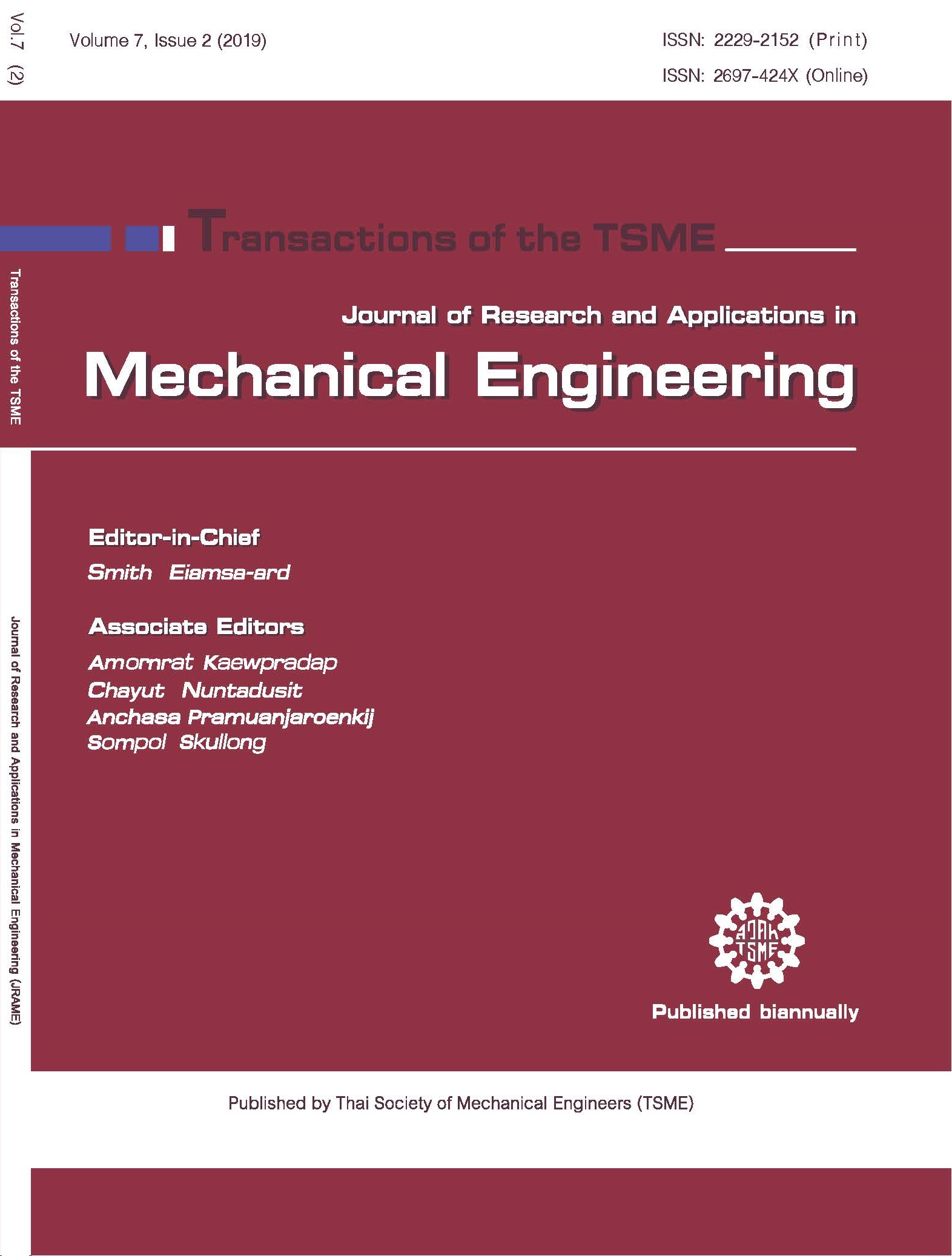LQR Aircraft pitch controller design for handling disturbance using differential evolution
Main Article Content
Abstract
This work presents the use of differential evolution (DE) for tuning a proportional-integral-derivative (PID) controller, linear quadratic regulator (LQR) with an integral action for aircraft pitch control. An optimisation problem for the two controllers are presented to optimise percentage of overshoot, settling time and steady state error while the weighted sum technique is applied. The design variables for the PID controller are control gains while for the LQR controller are the Q and R matrices. Various integral control gain values are employed for the LQR controller leading to a LQR with an integral action controller. The performance of the optimal controllers is investigated based on the single step and multiple steps response while some disturbance is also added. The results showed that PID controller is efficient for response speed while the optimum LQR with integral action controller is efficient for steady state error elimination. Both of the optimum controllers are robust and can handle disturbance rejection.
Article Details
This work is licensed under a Creative Commons Attribution-NonCommercial-ShareAlike 4.0 International License.
References
[2] Amr, S. and Qin, S. Robust adaptive flight controller for UAV systems, paper presented in 4th International Conference on Information Science and Control Engineering (ICISCE), 2017, Changsha, China.
[3] Vishal and Ohri, J. GA tuned LQR and PID controller for aircraft pitch control, paper presented in IEEE 6th India International Conference on Power Electronics (IICPE), 2014, Kurukshetra, India.
[4] Abachizadeh, M., Yazdi, M.R.H. and Yousefi-Koma, A. Optimal tuning of PID controllers using artificial bee colony algorithm, paper presented in IEEE/ASME International Conference on Advanced Intelligent Mechatronics, 2010, Montreal, Canada.
[5] Manocha, A. and Sharma, A. Three axis aircraft autopilot control using genetic algorithms : An experimental study, paper presented in IEEE International Advance Computing Conference, 2009, Patiala, India.
[6] Bender, D. and Laub, A. The linear-quadratic optimal regulator problem for descriptor systems, paper presented in 24th IEEE Conference on Decision and Control, 1985, Fort Lauderdale, USA.
[7] Ferreira, H.C., Baptista, R.S., Ishihara, J.Y. and Borges, G.A. Disturbance rejection in a fixed wing UAV using nonlinear H ∞ state feedback, paper presented in 9th IEEE International Conference on Control and Automation (ICCA), 2011, Santiago, Chile.
[8] McLean, D. and Matsuda, H. Helicopter station-keeping: comparing LQR, fuzzy-logic and neural-net controllers, Eng. Appl. Artif. Intell., Vol. 11(3), 2002, pp. 411-418.
[9] Wahid, N. Pitch control system using lqr and fuzzy logic controller, paper presented in IEEE Symposium on Industrial Electronics and Applications (ISIEA 2010), 2010, Penang, Malaysia.
[10] Usta, M.A. Aircraft roll control system using LQR and fuzzy logic controller, paper presented in International Symposium on Innovations in Intelligent Systems and Applications, 2011, Istanbul, Turkey.
[11] Smith, J., Su, J., Liu, C. and Chen, W.H. Disturbance observer based control with anti-windup applied to a small fixed wing UAV for disturbance rejection, J. Intell. Robot. Syst. Theory Appl., Vol. 88(2-4), 2017, pp. 329-346.
[12] Anjali, B.S., Vivek, A. and Nandagopal, J.L. Simulation and analysis of integral LQR controller for inner control loop design of a fixed wing micro aerial vehicle (MAV), Procedia Technol., Vol. 25, 2016, pp. 76-83.
[13] Storn, R. and Price, K. Differential evolution - A simple evolution strategy for fast optimization, Dr. Dobb’s J., Vol. 22(4), 1997, pp. 18-24.
[14] Nelson, RC. Flight Stability and Automatic Control, 2nd edition, 1998, McGraw-Hill Companies, Singapore.



